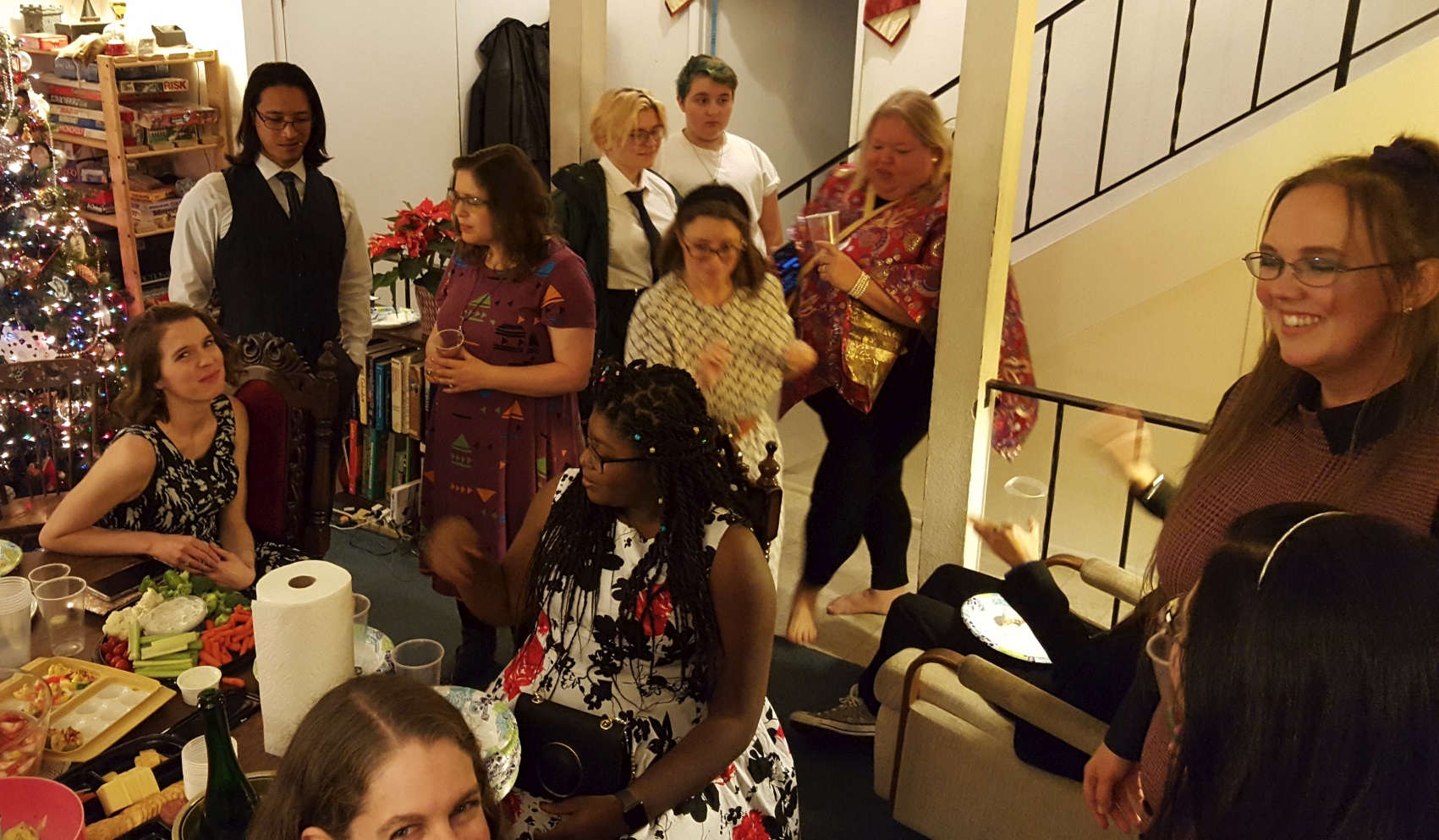
by Gideon Marcus
[Time is running out to get your Worldcon membership! Register here to be able to vote for the Hugos.]
Ho Ho Ho!
Merry Christmas, everyone! Santa Traveler has got a lovely bunch of presents for you.
When I started this little project, it was a lot easier to keep track of all the science fiction that was coming out — I simply didn't try! It was just me and three magazines a month. (Keeping track of space shots was easier, too…there warn't that many!)
But these days, it is the Journey's mission to review as much science fiction and fantasy output as possible so as to give the Hugo Awards a run for their money. Luckily, I've found a dozen other writers to join me on this mission, so coverage hasn't been too much of a problem.

Compiling the Galactic Stars at the end of the year, though… Whew! Talk about making a list and checking it twice!
So, submitted for your approval are what we think are the best science fiction and fantasy 1964 had to offer the fans. If you stick to this list, you will have a vast array of presents with which to while away Christmas morning…and beyond!
The 1964 Galactic Stars
——
Best Poetry
——
The End of the Wine, by C.S. Lewis
A poignant tale of lost Atlanteans; the last published piece by the recently deceased great.
——
Best Vignette (1-9 pages):
——

The Deepest Blue in the World, by S. Dorman
The logical and horrifying conclusion when women are valued for motherhood and nothing else.
Touchstone, by Terry Carr
You can carry luck in your pocket, literally.
The Life Hater, by Fred Saberhagen
The sentient robot battleships can be outwitted, but it's not easy!
Honorable Mention:
The Transcendent Tigers, by R. A. Lafferty
Beware of the Dog, by Gahan Wilson
Olsen and the Gull, by Eric St. Clair
A Crown of Rank Fumiter, by Vance Aandahl
Lucifer, by Roger Zelazny
—
F&SF dominated this category, in part because vignettes are their stock in trade.
——
Best Short Story (10-19 pages):
——

Final Encounter, by Harry Harrison
An amazing, sensitive tale of first contact with a familiar face.
The Boundary Beyond, by Florence Engel Randall
Love triangle meets a dryad. Tragedy ensues.
Descending, by Thomas Disch
Credit overreach leads to a real and metaphysical descent — perhaps Tom Disch's best (and there's many to choose from!)
Honorable Mention:
Minnesota Gothic, by Thomas Disch
Pacifist, by Mack Reynolds
The Time Dweller, by Michael Moorcock
The Lost Leonardo, by J. G. Ballard
The Rule of Names, by Ursula K. LeGuin
The Word of Unbinding, by Ursula K. LeGuin
Cynosure, by Kit Reed
Paingod, by Harlan Ellison
A as in Android, by Frances T. Hall
Chameleon, by Ron Goulart
Beyond the Line, by William F. Temple
I remember, Anita, by Langdon Jones
Midnight in the Mirror World, by Fritz Leiber
Assassin and Son, by Thomas Disch
Your name shall be…darkness, by Norman Spinrad
Rescue Mission, by Harry Harrison
A Red Heart and Blue Roses, by Miriam Allen DeFord
—
Forgive me for the avalanche! But with so many stories coming out and so many fellow travelers making recommendations, it was hard to prune the list.
This is a category with highly disproportionate representation by women, considering that only about ten percent of the stories published in the magazines we cover are penned by women. You can bet one or more of these will be in the next volume of Rediscovery!
——
Best Novelette (20-45 pages)
——

The Eyes Have It, by Randall Garrett
In a magical 20th Century, an hermetic detective investigates a murder.
The Fall of Frenchy Steiner, by Hilary Bailey
Spies and psionics in Nazi-occupied England.
The Delegate from Guapanga, by Wyman Guin
A battle for the throne in a beautifully realized alien setting.
Honorable Mention:
Novelty Act, by Philip K. Dick
The Terminal Beach, by J. G. Ballard
Jungle Substitute, by Brian Aldiss
The Master Key, by Poul Anderson
The Black Gondolier, by Fritz Leiber
—
A lot of tough choices here. And I'm as surprised as you to see Garrett at the top of the list, but there he is!
——
Best Novella (46+ pages)
——

The Graveyard Heart, by Roger Zelazny
The ultra-rich hibernate through history, occasionally waking to party and cavort. A highly literary piece.
A Man of the Renaissance, by Wyman Guin
A future Leonardo on a landless planet — ingenuity is humanity's greatest resource.
The Dark Light-Years, by Brian Aldiss
Can we handle first contact with a physically repulsive species?
Honorable Mention:
Adept's Gambit, by Fritz Leiber (reprint)
Once a Cop, by Rick Raphael
Day of the Great Shout, by Philip J. Farmer
The Fatal Eggs, by Mikhail Bulgakov (reprint…sort of)
Soldier Ask Not, by Gordon Dickson
The Kragen, by Jack Vance
—
We have a lot more choices this year for the category. It's probably because we are reviewing more magazines, which is where novellas tend to come out. They are a really nice length — long enough to develop a theme, but not so long as to compel overstaying a welcome (if it's not necessary).
——
Best Novel/Serial
——

The Boy Who Bought Old Earth/The Store of Heart's Desire, by Cordwainer Smith
The ultimate Instrumentality story, weaving all of the threads spun heretofore. It is strung across two magazines.
The Other Human Race, by H. Beam Piper
Sequel and superior to Little Fuzzy. Sadly, we lost Mr. Piper last month, so this is his last book.
Message from the Eocene, by Margaret St. Clair
Billions of years ago, before life evolved on our planet, the alien Tharg must deliver a cosmic gudebook. He dies in the process, leaving his soul to enlist the aid of humans in 1974…
Honorable Mention:
Equinox, by J. G. Ballard
The Starsloggers, by Harry Harrison
I want the stars, by Tom Purdom
Davy, by Edgar Pangborn
Simulacron-3, by Daniel Galouye
Transit, by Edmund Cooper
Marooned, by Martin Caidin
Starswarm, by Brian Aldiss
The Whole Man, by John Brunner
The Penultimate Truth, by Philip K. Dick
—
Another hard set of choices! Davy only didn't make the list because we've seen the stories that make up the novel in prior F&SF issues. The Starsloggers was a very close fourth.
——
Science Fact
——

The Conventional Approach, by Robert Bloch
An excellent history of science fiction conventions! No con organizer should start an endeavor without reading it.
Clouds, Bubbles and Sparks, by Edward C. Walterscheid
The best one-article summary I've yet found of how we detect cosmic rays and charged particles.
Anyone Else for Space?, by Willy Ley
The Space Race isn't just the province of the U.S. and U.S.S.R. anymore.
Honorable Mention:
The Early Days of the Metric System, by Willy Ley
Plowshare Today, by Edward C. Walterscheid
Philip Jose Farmer: Sex and Science Fiction, by Sam Moskowitz
—
A nice spread this year. I am particularly happy to see Willy Ley back on this list, and also seeing Analog represented again. Missing are Amazing's Ben Bova, who is improving, but is not yet a star, and Dr. Asimov of F&SF, who is still good, but whose work seems to be a little phoned in these days.
——
Best Magazine
——

New Worlds (3.20 stars; five Galactic Star entries)
Galaxy (3.10 stars; nine Galactic Star entries)
Worlds of Tomorrow (2.93 stars; four Galactic Star entries)
IF (2.90 stars; four Galactic Star entries)
Fantastic (2.81 stars; but twelve Galactic Star entries)
Analog (2.76 stars; six Galactic Star entries)
Fantasy and Science Fiction (2.64 stars; but seventeen Galactic Star entries)
Amazing (2.38 stars; two Galactic Star entries)
and Gamma, with only one issue (3 stars)
—
Pohl's triplets continue to be very strong showers, but New Worlds across the Pond took the prize. Fantastic and F&SF are worth reading for their standouts even if their average ranks are unimpressive.
Shame about Gamma. It was so promising.
——
Best author(s)
——
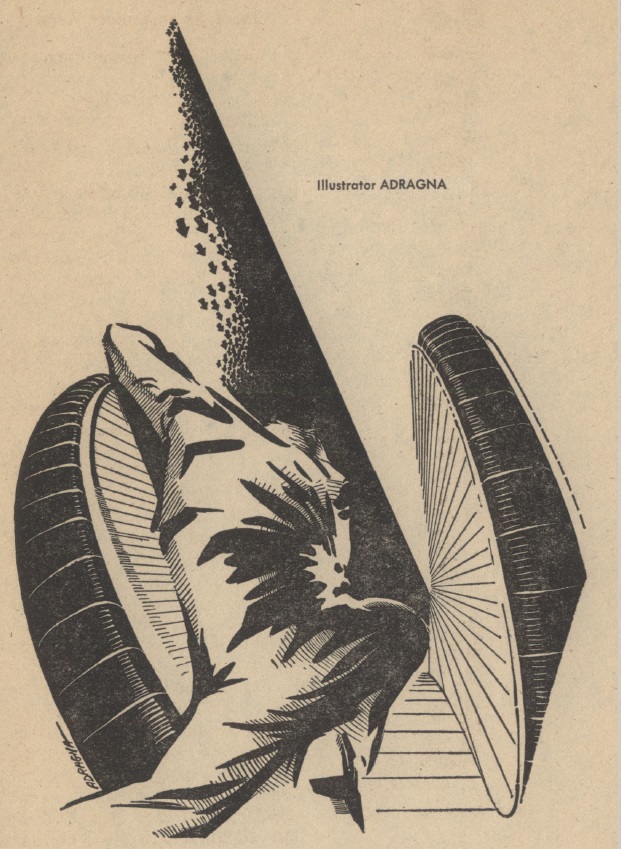
Tom Disch
This Cele Lalli discovery, just 24 years old, garnered three Galactic Stars this year.
He narrowly beats out Harry Harrison (and Harrison might have been on top, but he came out with clunkers as well as masterpieces this year).
——
Best Artist
——

One of Analog's regulars, I just love his clean, pen and ink style as well as his muted color, realistic covers.
Honorable Mention:
——
Best Dramatic Presentation
——

The most riveting and horrifying film about nuclear war ever made.
The best giant monster movie ever made…and it stars a woman (monster)!
The Dalek Invasion of the Earth, an episode of Doctor Who
Daleks in front of Buckingham Palace. Nuff said.
Honorable Mention:
Demon with a Glass Hand, an episode of The Outer Limits
Marco Polo, an episode of Doctor Who
An Occurrence at Owl Creek Bridge, an episode of The Twilight Zone
and
Beauty Contest, an episode of My Living Doll

Why list a comedy I dismissed (from the previews) as frivolous, sexist, and dumb?
Because this show, about a fellow who comes into the custody of a woman android, is genuinely funny — all thanks to Julie Newmar. The bit where she plays piano a la Victor Borge is one of the great scenes of TV history.
Plus, Ms. Newmar is an incredible person, all 'round. I hope we see more of her screen outings in the near future!
——
Best Fanzine
——

Starspinkle gave up the ghost last month, though it has a lookalike sequel, Ratatosk. They were/are both nice little gossip biweeklies.
Of course, we are partial to Galactic Journey, and we you hope are, too! We have been honored to accept your nomination for Hugo Finalist twice in a row (though we strangely did not appear on the 1963 and 1964 ballots). We hope you'll choose us again!
And that's that for 1964! It was a rich year full of worthy titles. Ho Ho Ho! Go ye and enjoy them all!


![[December 25, 1964] Stars of Bethlehem and Galactic Journey (Galactic Stars 1964)](https://galacticjourney.org/wp-content/uploads/2019/12/641225star-672x372.jpg)

![[October 8, 1964] Through Time and Space (November 1964 <i>IF</i>)](https://galacticjourney.org/wp-content/uploads/2019/10/641008cover-672x372.jpg)
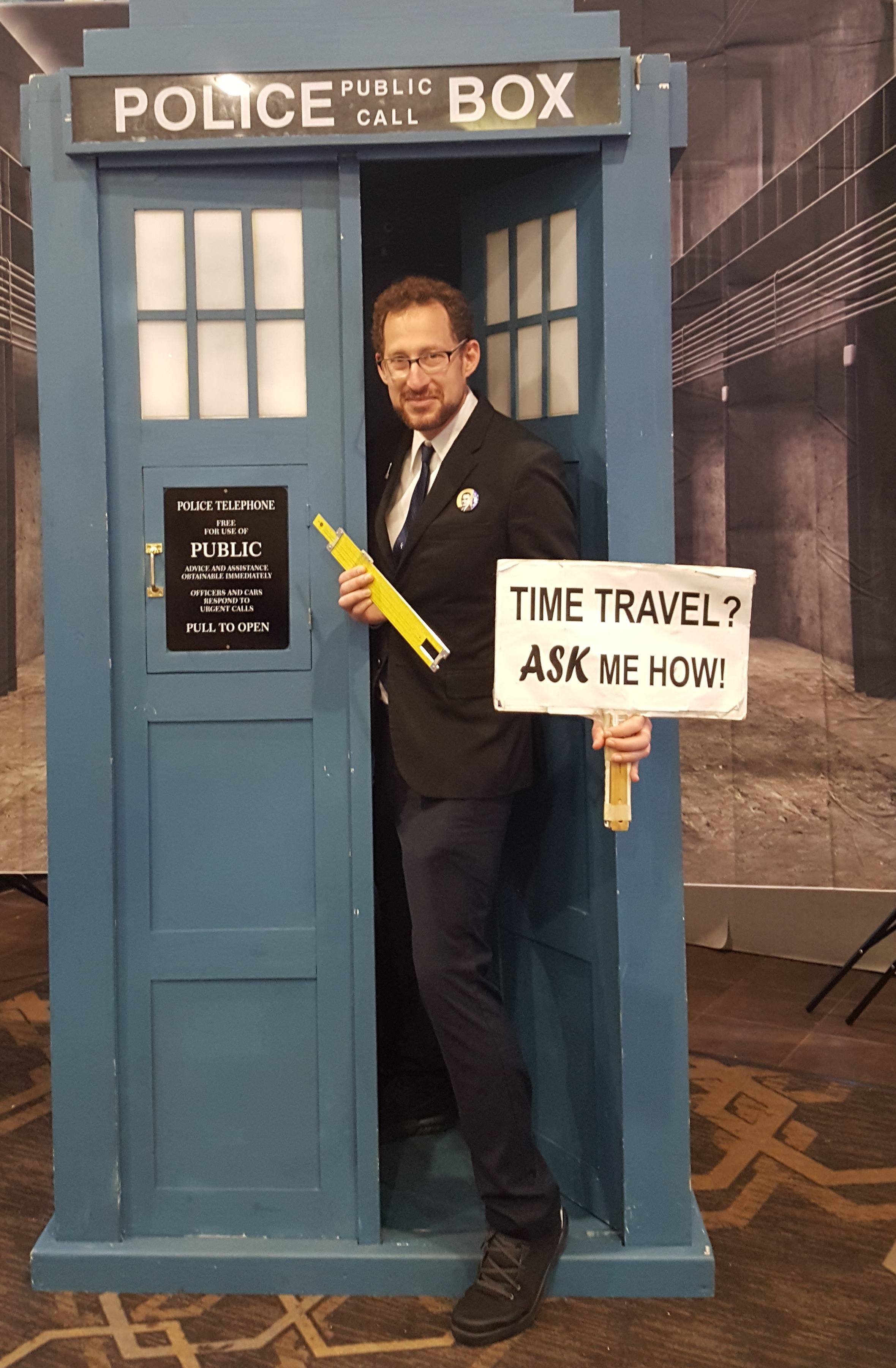
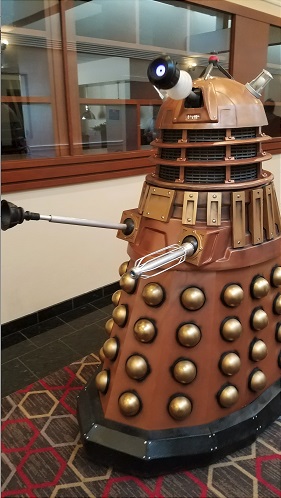

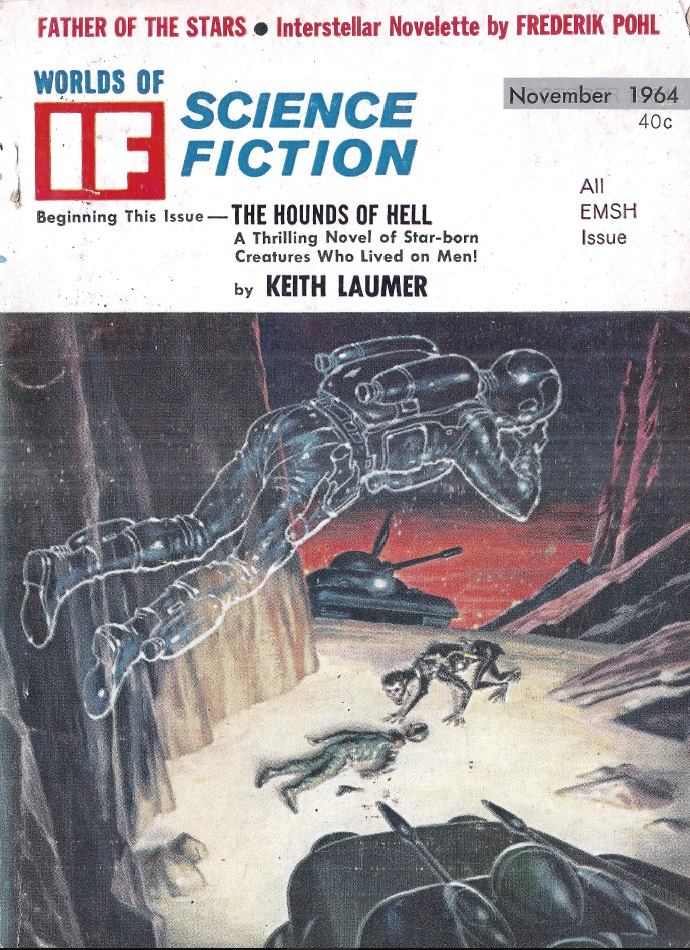


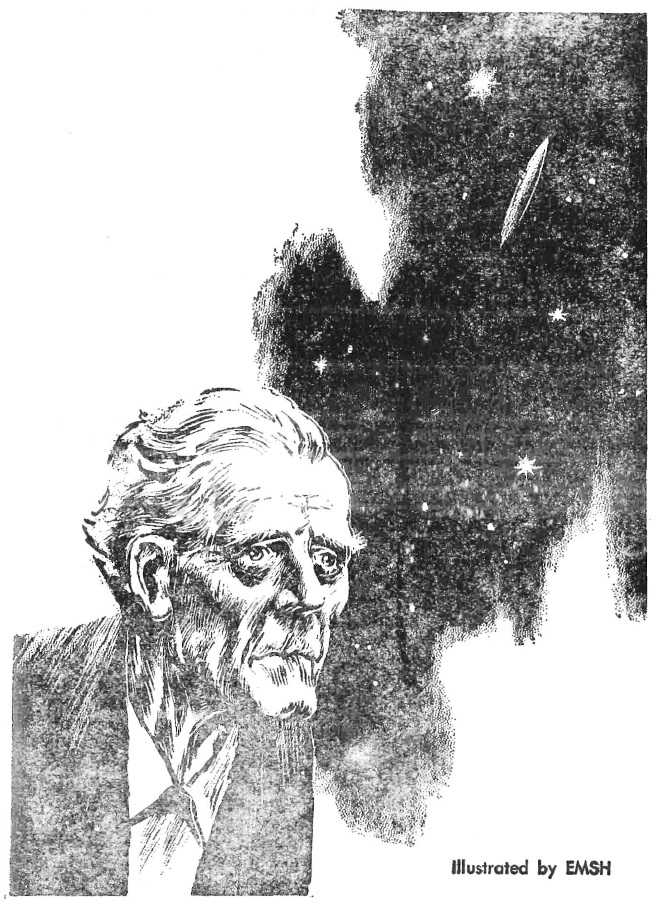
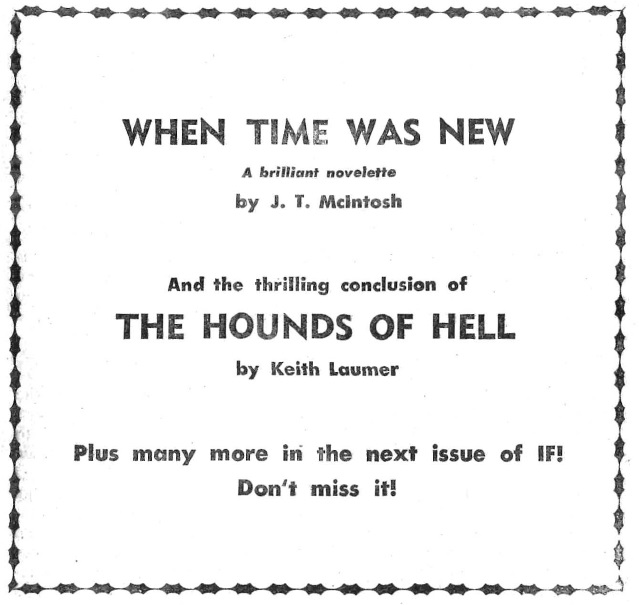
![[July 16, 1964] Un-Conventional (August 1964 <i>Galaxy</i>)](https://galacticjourney.org/wp-content/uploads/2019/07/640716cover-398x372.jpg)

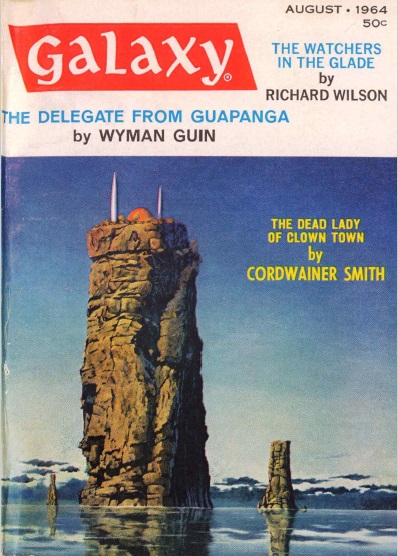
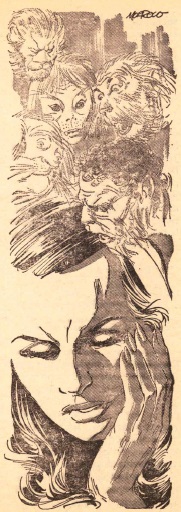
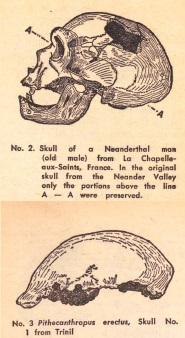

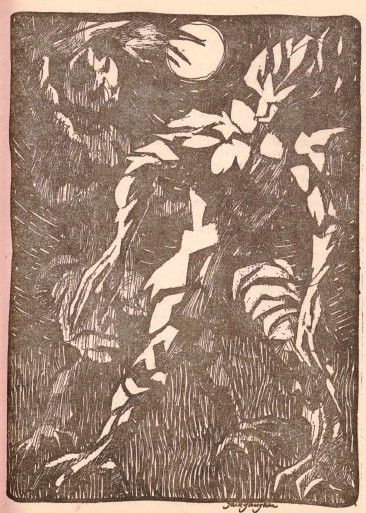
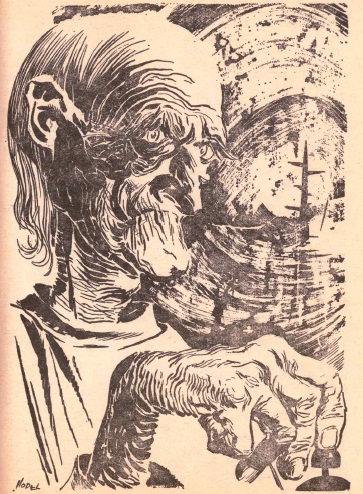
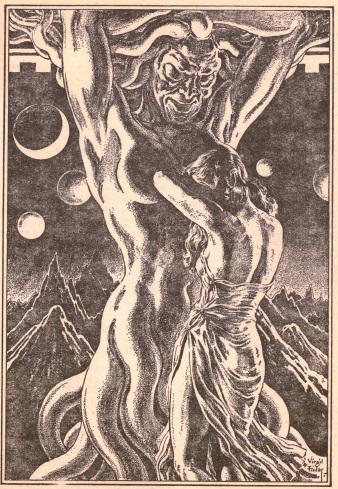
![[July 10, 1964] Greetings from the Red Planet (The Movie, <i>Robinson Crusoe on Mars</i>)](https://galacticjourney.org/wp-content/uploads/2019/07/640710b-672x372.jpg)

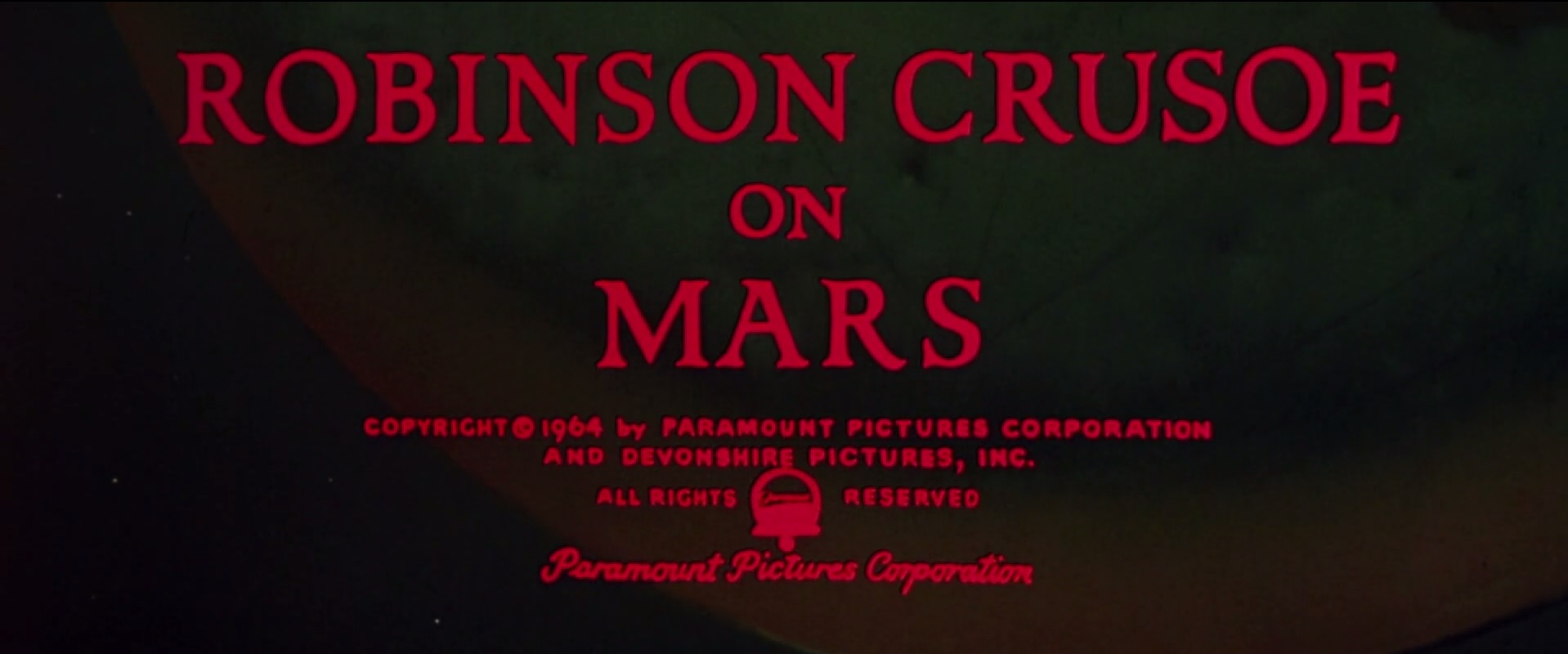
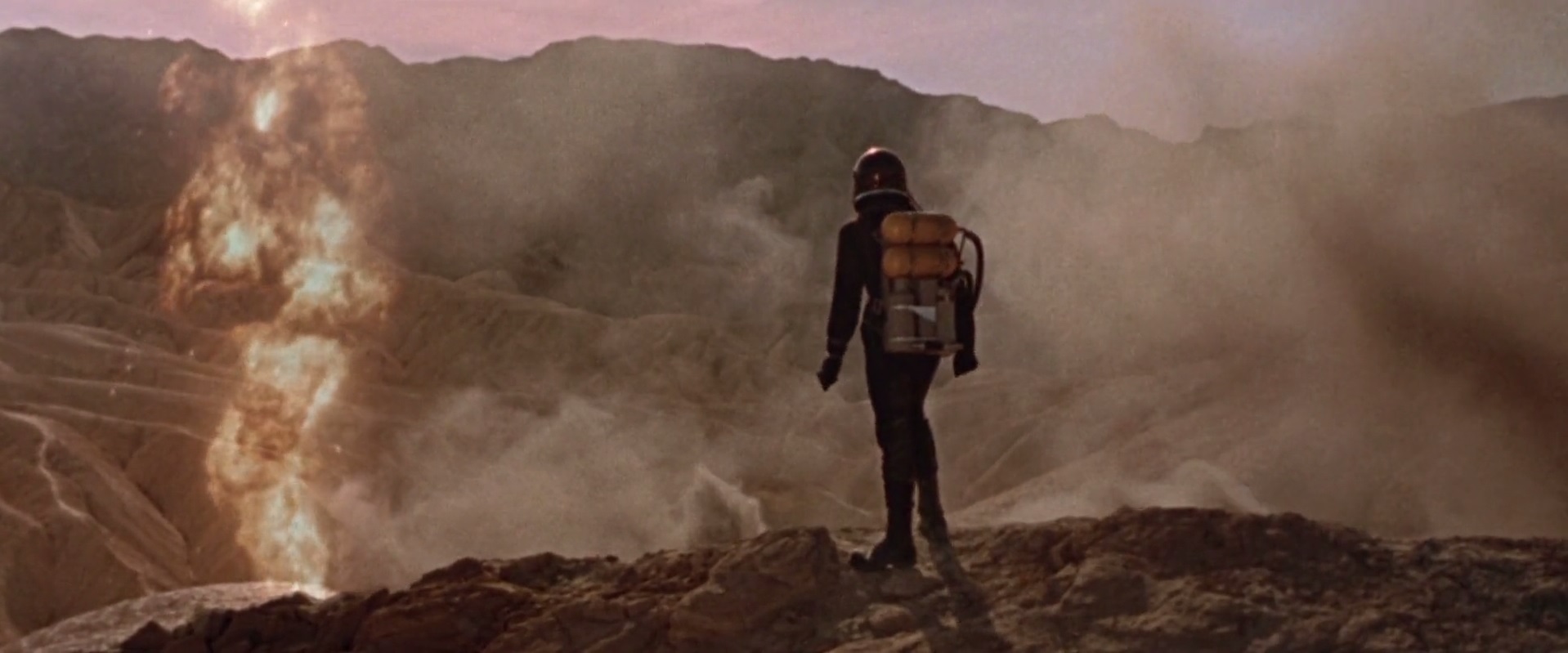
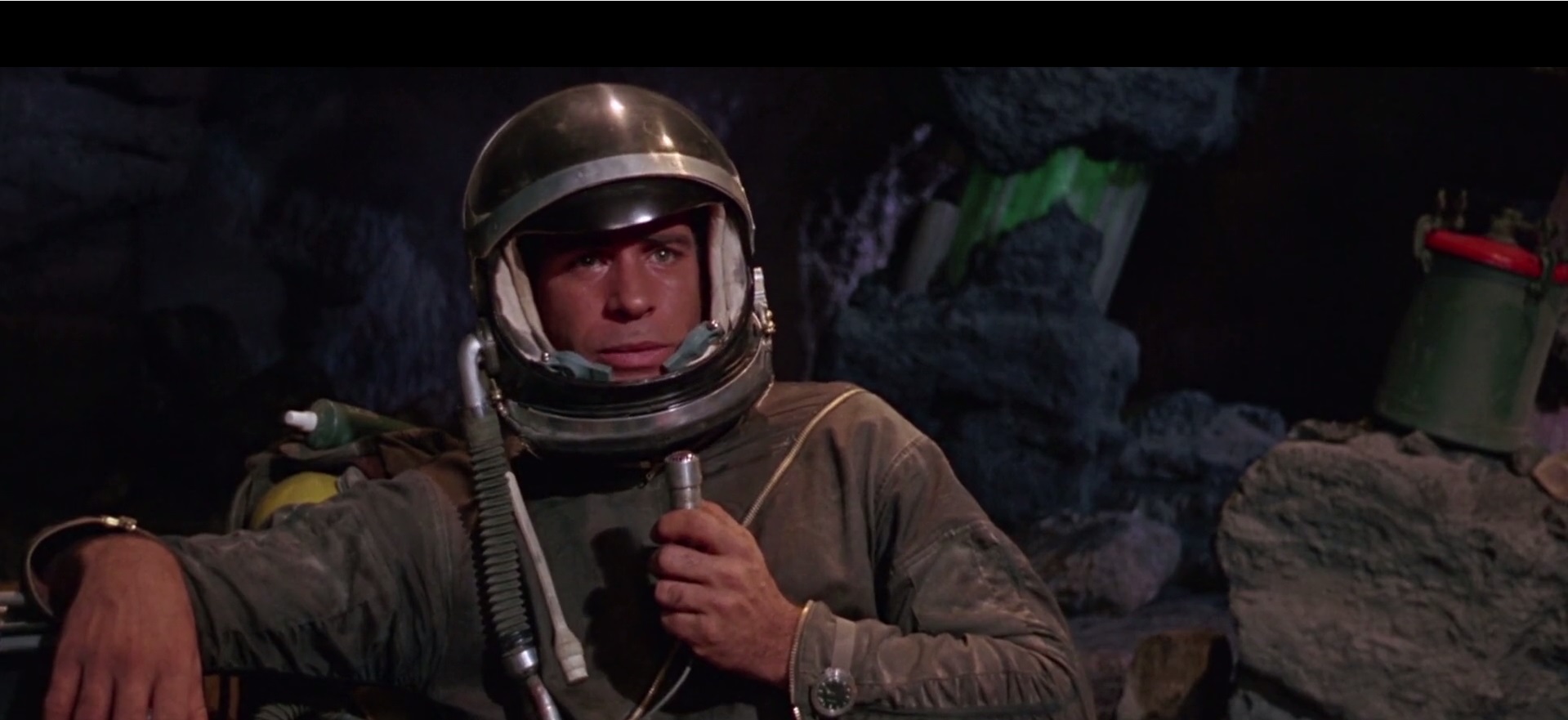

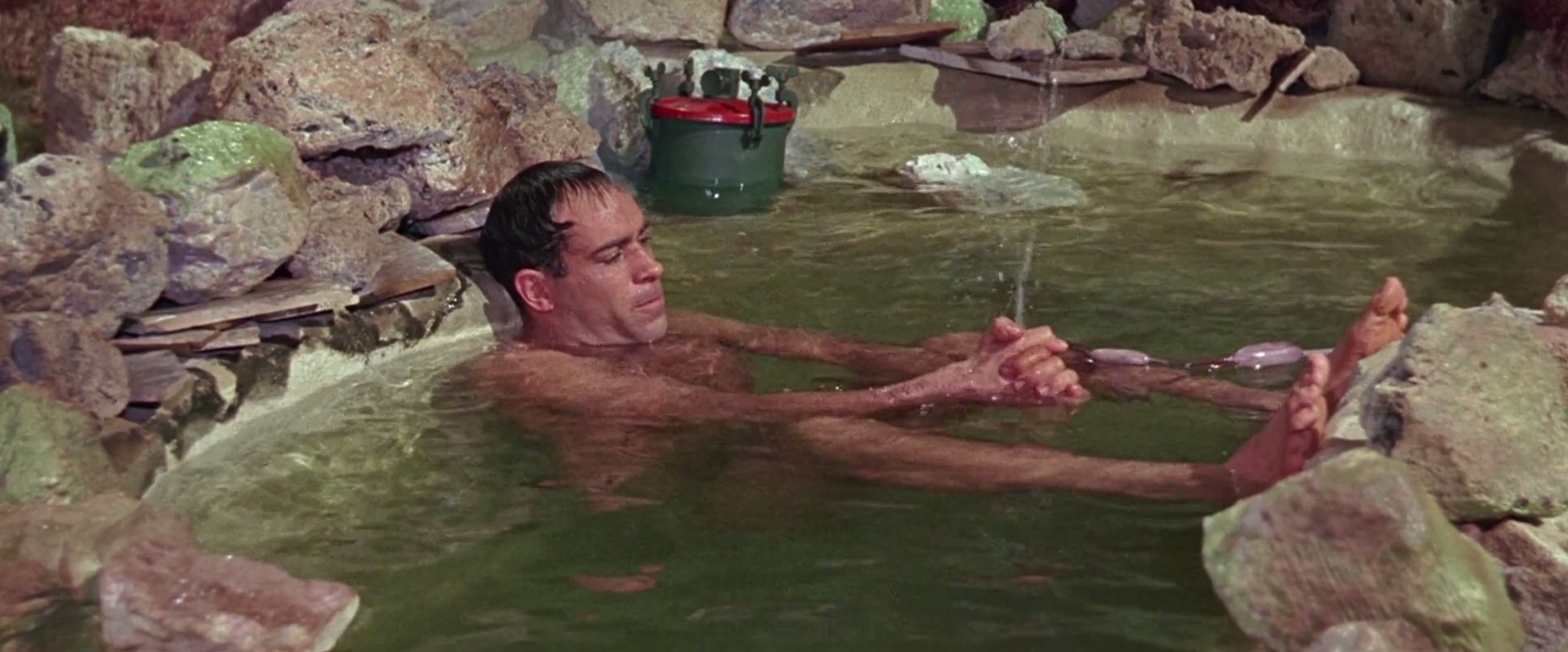

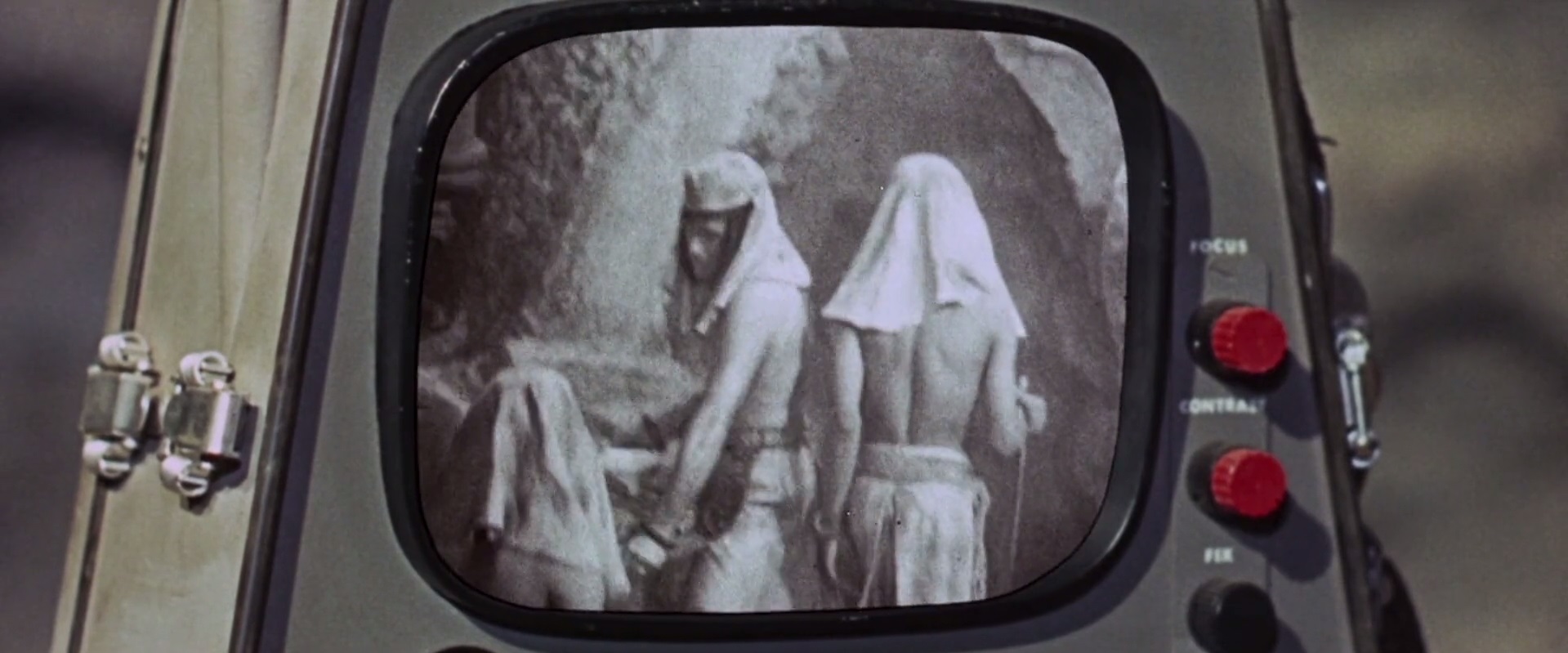

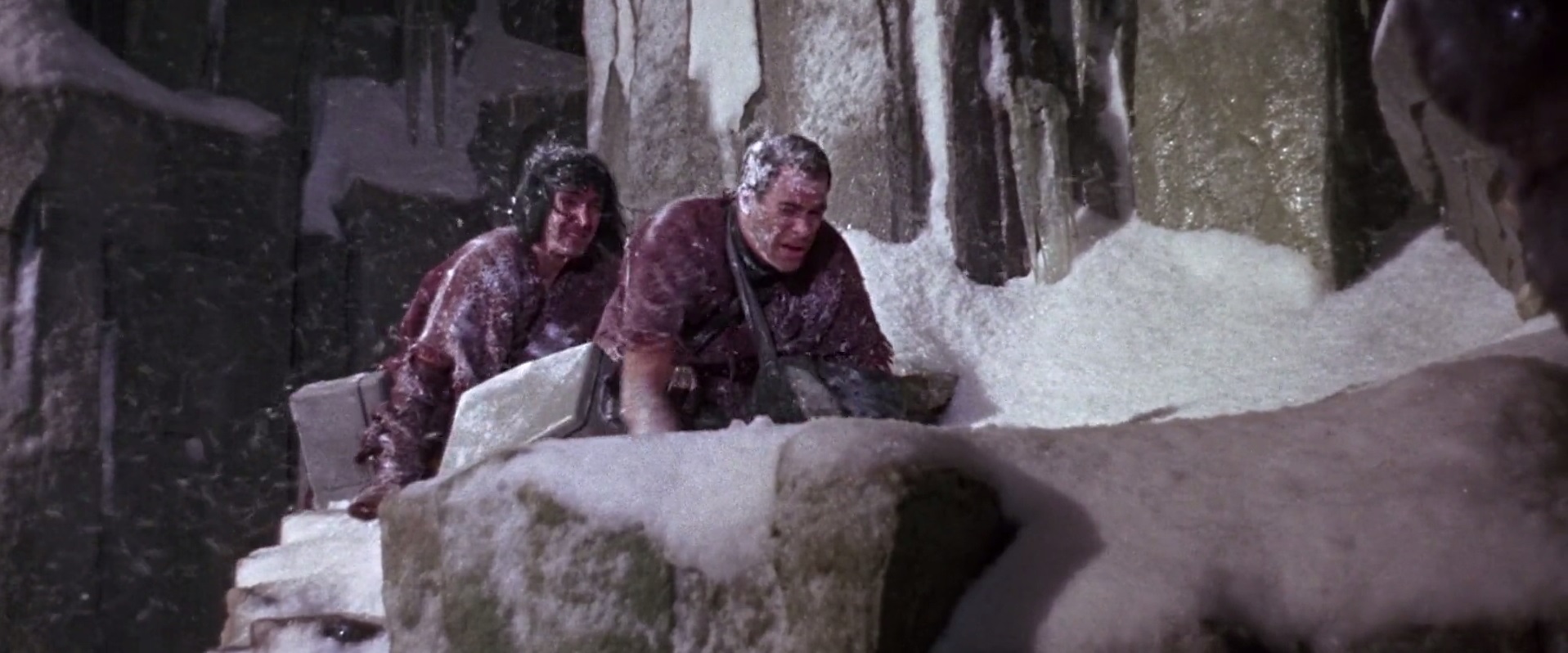
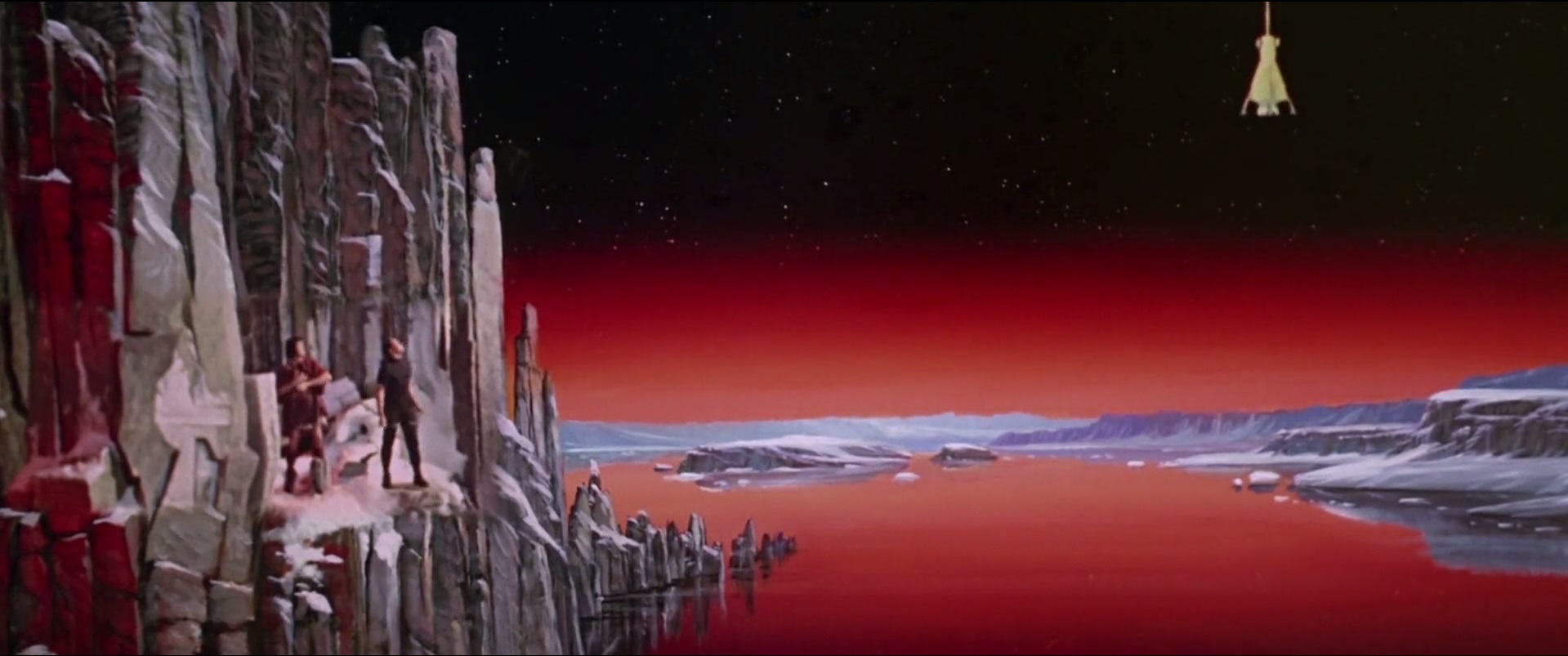
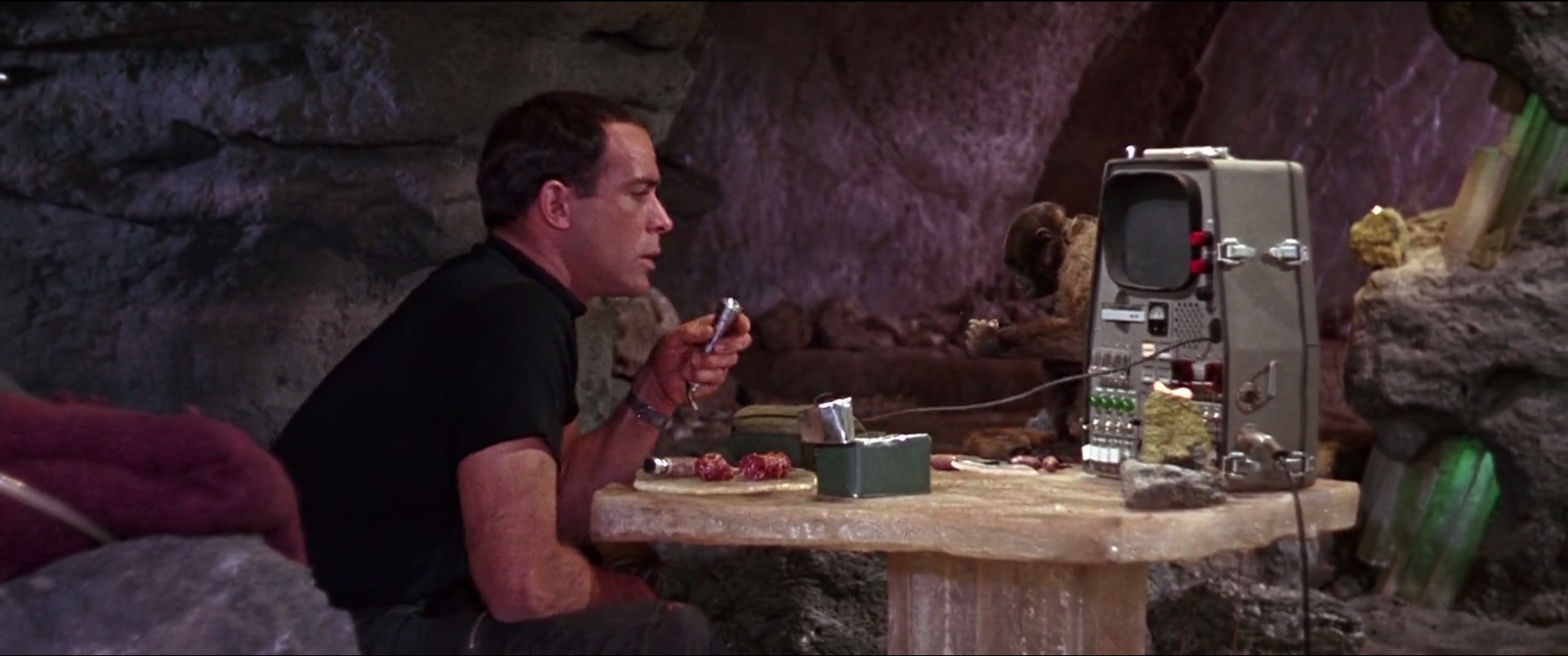

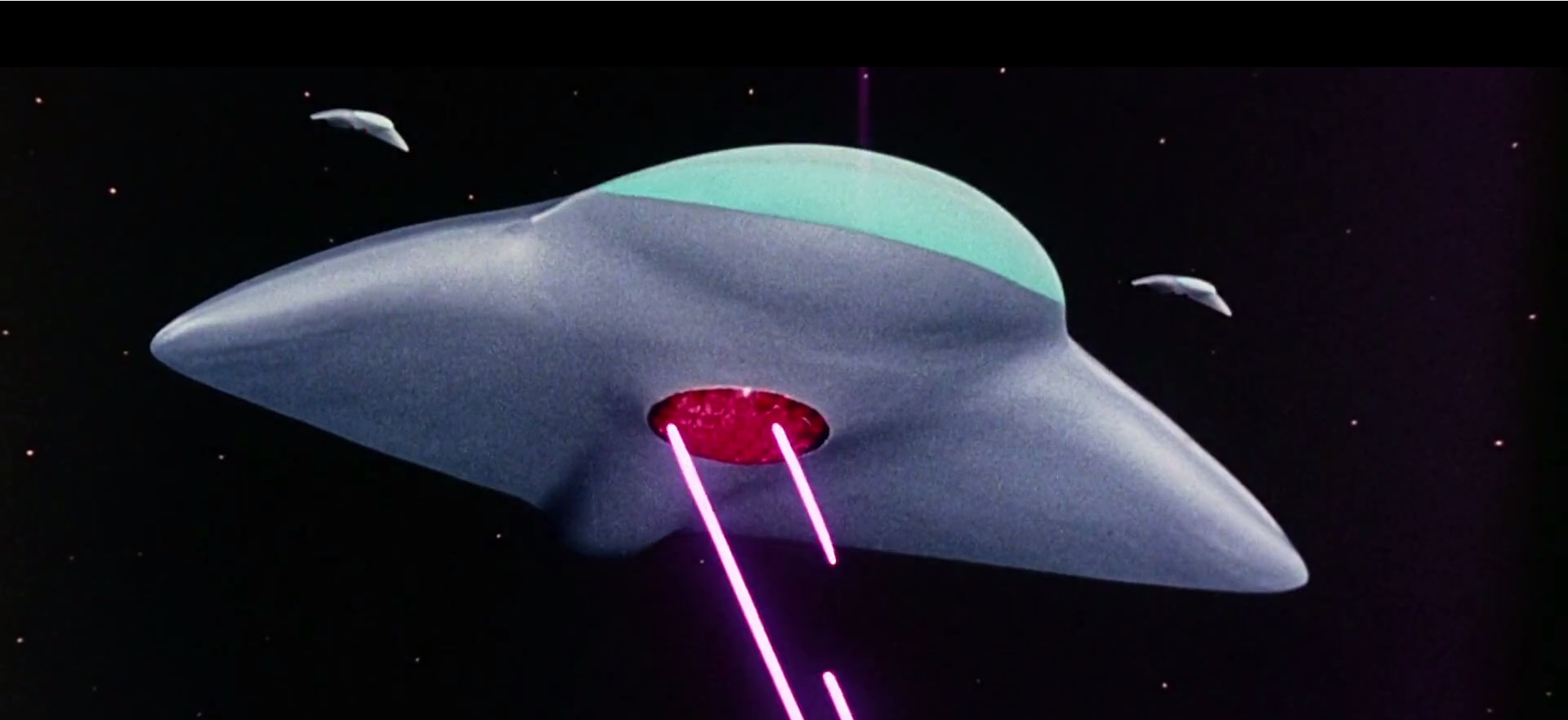
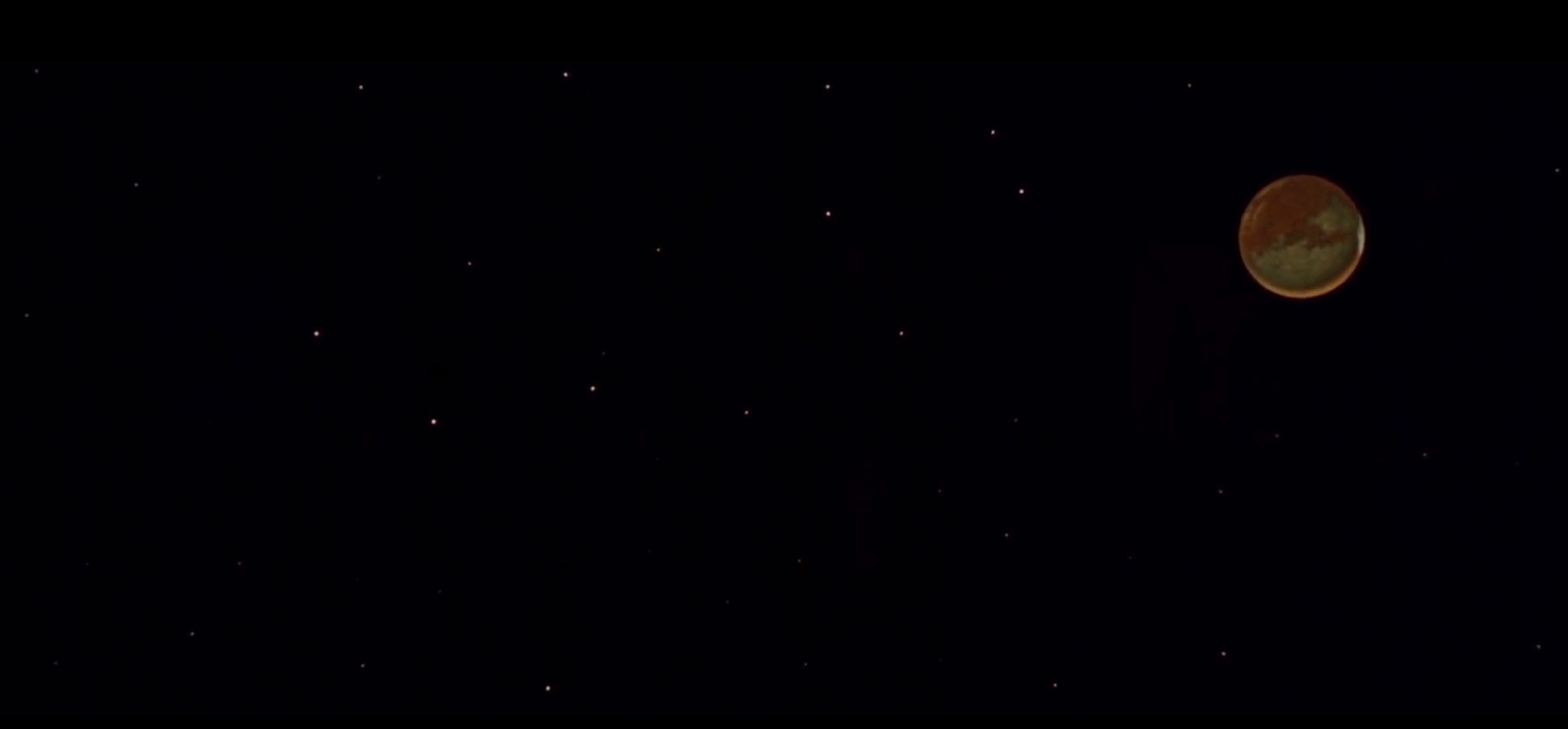
![[January 15, 1964] That was the Year that Was (1963 at Galactic Journey)](https://galacticjourney.org/wp-content/uploads/2019/01/gjav60d.jpg)

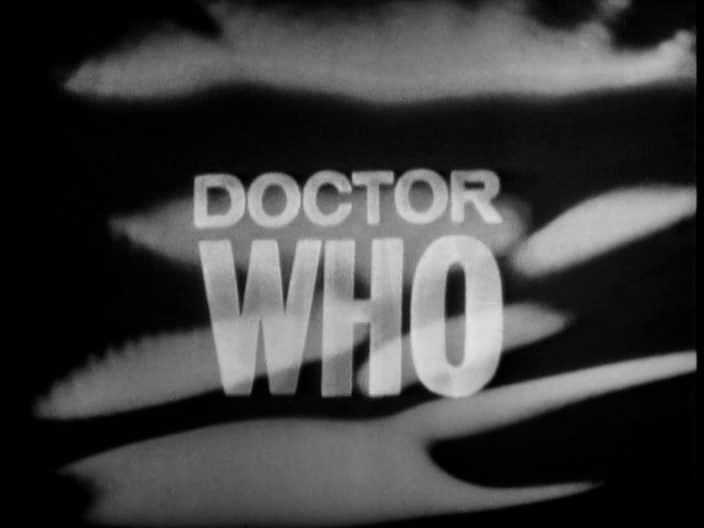

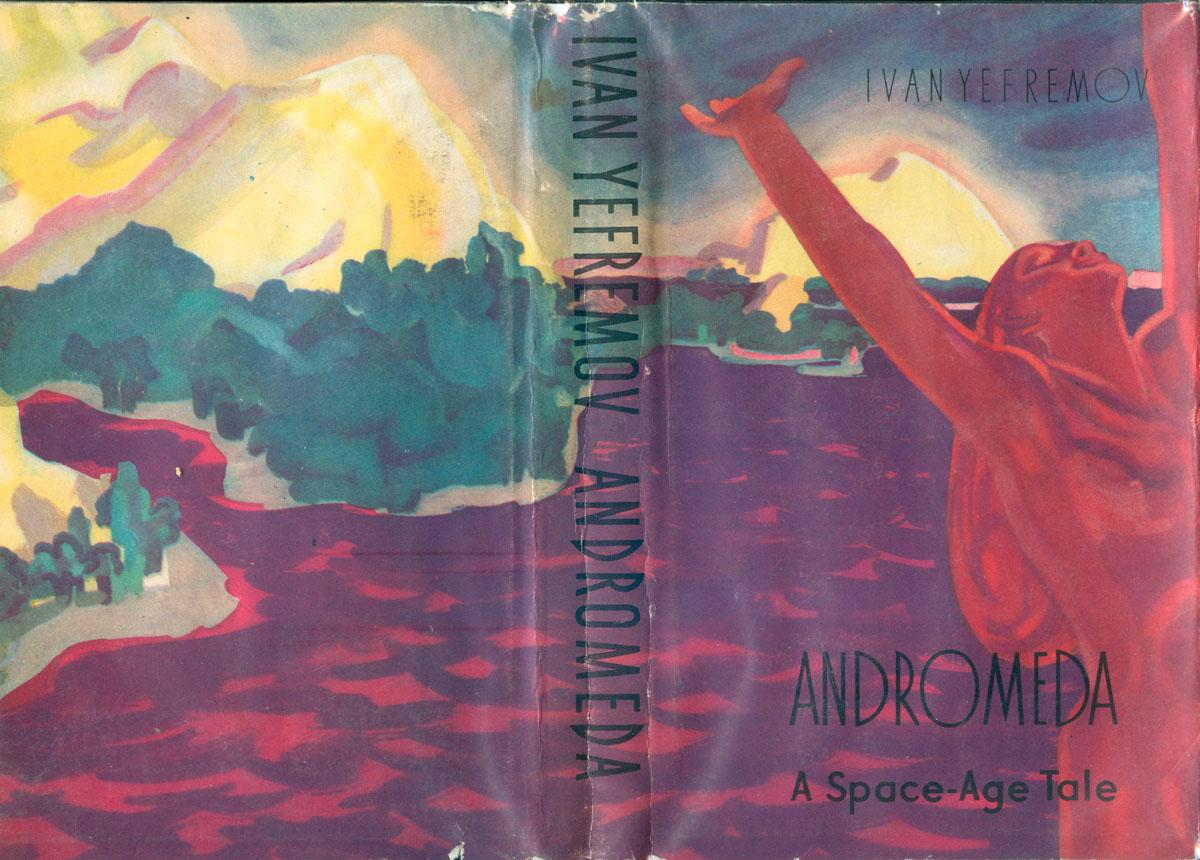

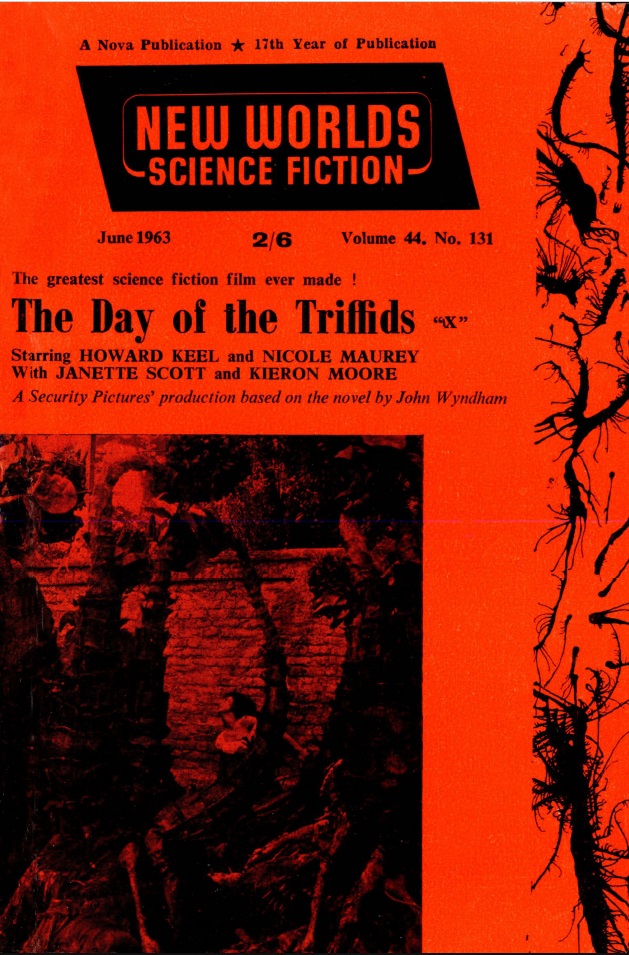

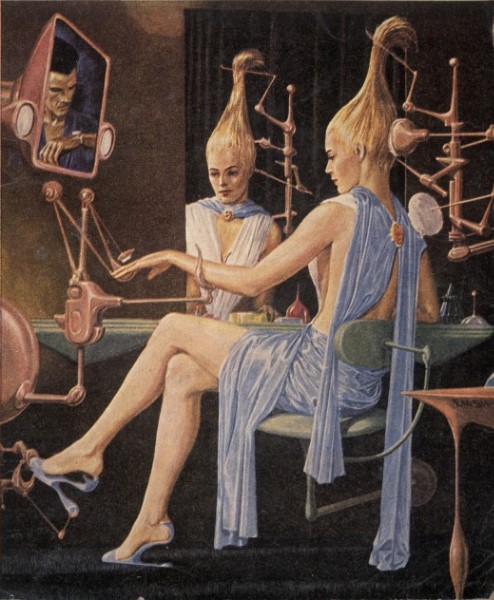

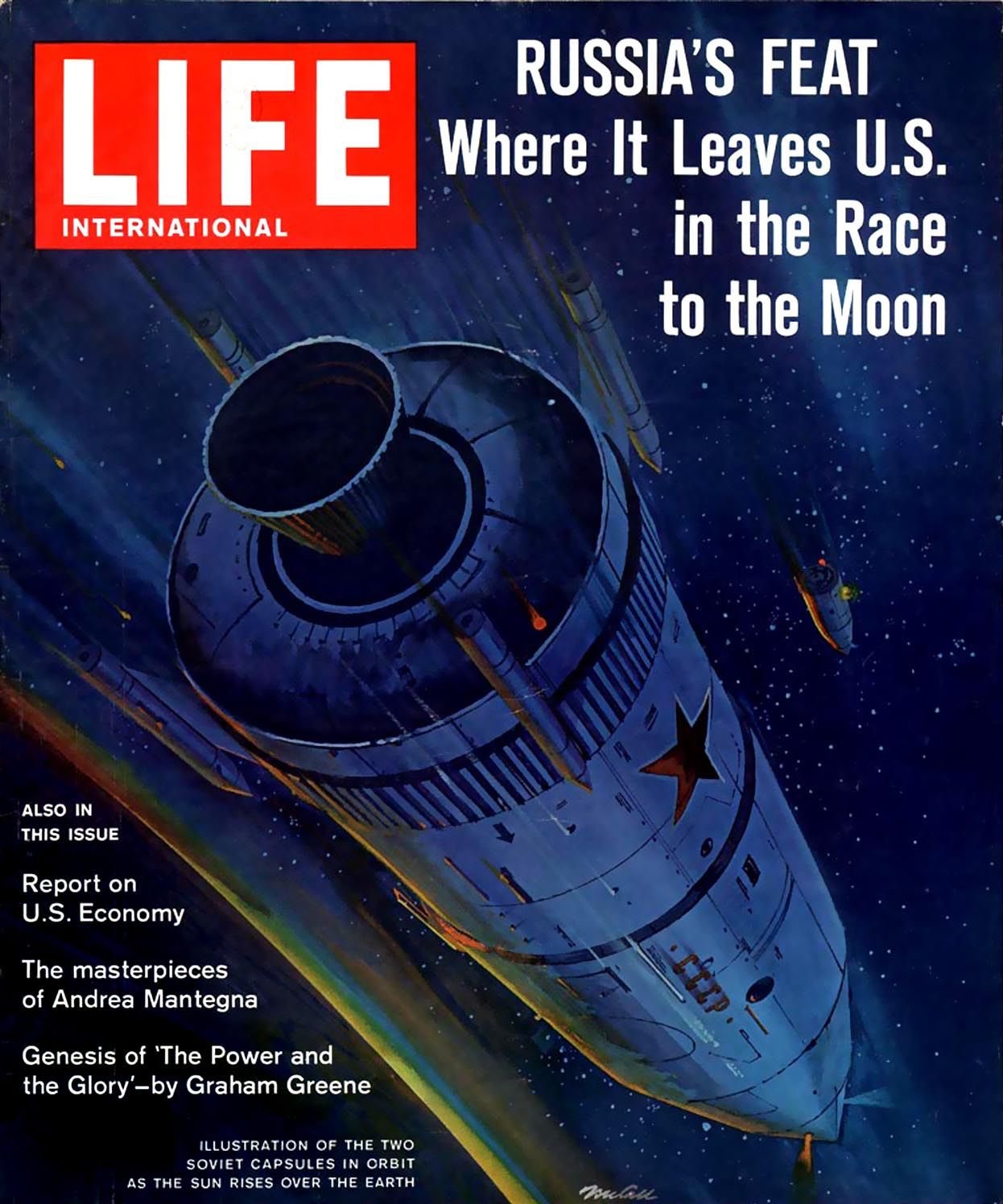
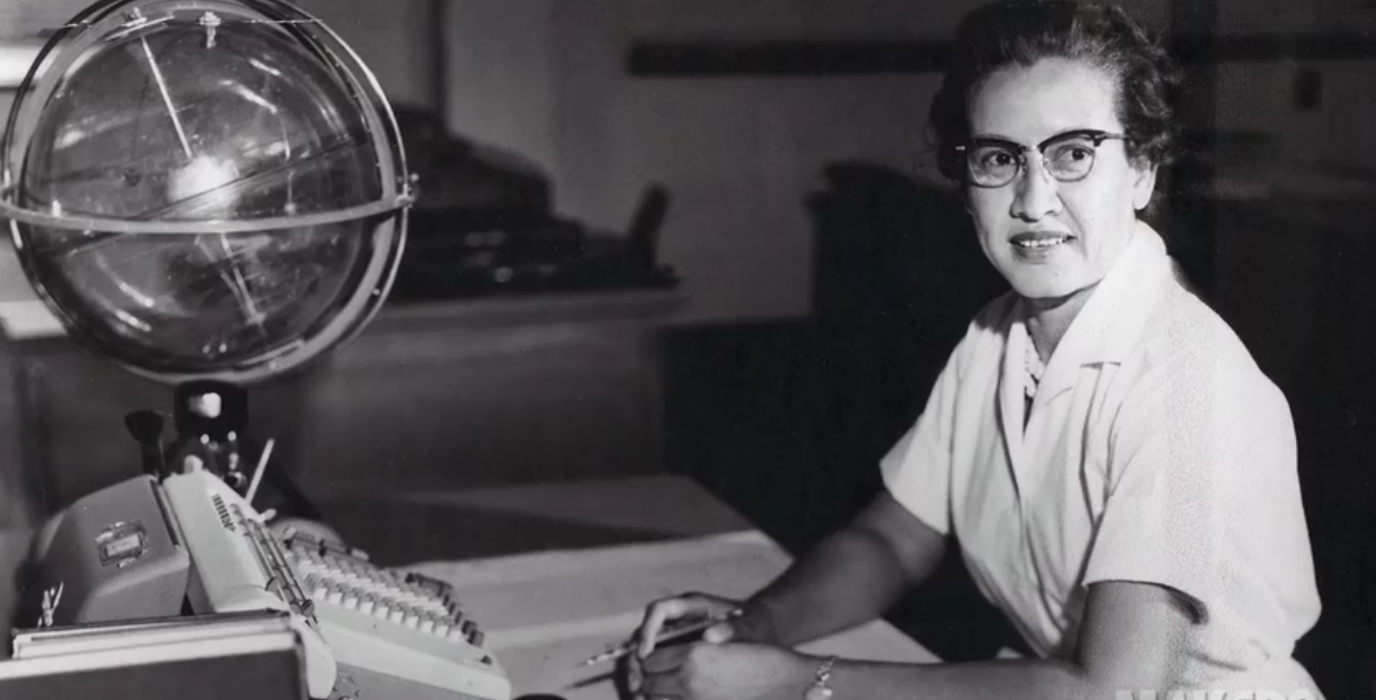




![[January 2, 1964] All's well that ends well (January 1964 <i>Analog</i> science fiction)](https://galacticjourney.org/wp-content/uploads/2019/01/640102cover-653x372.jpg)

